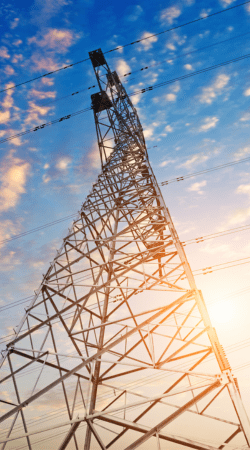- +91-11-4044-5999
- info@cdri.world
-
Copernicus Marg, New Delhi, INDIA

As nations rely increasingly on electricity for their growth, building the resilience of power infrastructure becomes all the more critical to provide reliable and sustainable services. These services contribute to people’s health and well-being, access to food, healthcare, transportation, telecom, water supply, along with the ability for economies to function while providing for goods, services, jobs and income.
However, the power sector is highly vulnerable to natural hazards. In 2019, Cyclone Fani caused extensive damage to power infrastructure in the state of Odisha, India. The sector sustained damages up to US$1.2 billion, accounting for the maximum losses out of all social, productive, and infrastructure sectors. The impact showcased the need for disaster and climate resilient power infrastructure systems with CDRI initiating a three-phase study to enhance the resilience of power infrastructure sector in Odisha.
The learnings will be shared with other regions of India and CDRI Member Countries, benefitting similar coastal environments across the world by informing the steps they can take to cope with disasters, especially those resulting from extreme climatic events.
CDRI is also collaborating to develop power sector resilience programs with the governments of Chile, Brazil, Indo-Pacific coastal countries and Small Islands Developing States (SIDS) to:
- Raise awareness and enhance the understanding about managing risks among power sector stakeholders;
- Enhance stakeholders’ capacity to take adaptive actions to mitigate these risks and cope with the impact of future disasters; and
- Focus on strengthening of hardware along with the policy, governance and finance measures required to achieve long term resilience